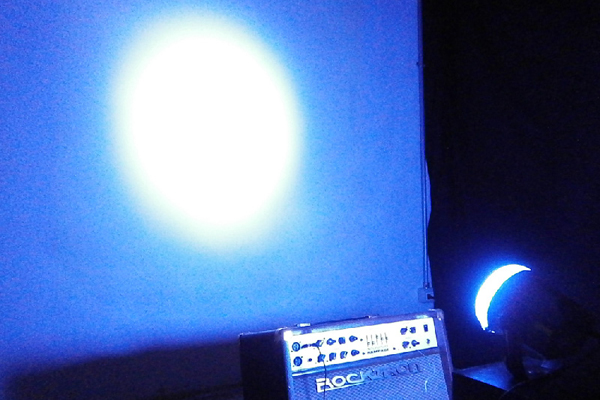Gli ottovolanti sono macchine sceniche per la produzione di vagitiInstallation
audio system, mp3 player, strobolight, phosohorescent paint, various materials, variable dimensions
2012
EN
The title of the work translated in English means
literally “rollercoasters are stage machineries for the production of newborn’s
cries”. The work revolves around an interest for the very first screams of an
infant, as a primitive and pre-verbal form of communication, independent from
any linguistic superstructure. The etymology of the Italian word vagito – in English “screams or cries of
a newborn” – refers to Vagitanus or Vaticanus, a god of the Roman pantheon; his
function was to pull out of a newborn's mouth his or her first scream. The word
“vagito” indicates the manifestation of a vital instinct and one of the antonyms
of the verb “vagire” is the verb “morire” (to die).
The work, installed within a dark room, is made
of sound and light. As the visitor enters the room he or she is confronted with
a stroboscopic light and the loud screams of the artist recorded during a ride
on a rollercoaster at the age of 30.
IT
Di derivazione latina, il termine vagito (vāgītus) nasce in riferimento alla divinità romana minore Vagitanus o Vaticanus che aveva il ruolo di introdursi nella bocca del bambino appena nato per estrarne il primo urlo vitale. Nella lingua italiana il contrario del verbo “vagire” può essere identificato con il verbo “morire”.
L’opera è incentrata sul vagito come espressione originaria del linguaggio, pre-verbale in quanto priva di sovrastrutture linguistiche. L’unico fine del vagito è il puro manifestarsi.
Nell’installazione il vagito è reso attraverso una registrazione in loop delle grida emesse dall’artista durante una corsa su un ottovolante, utilizzato come dispositivo per evocare l’urlo del vagito stesso.
L’opera è incentrata sul vagito come espressione originaria del linguaggio, pre-verbale in quanto priva di sovrastrutture linguistiche. L’unico fine del vagito è il puro manifestarsi.
Nell’installazione il vagito è reso attraverso una registrazione in loop delle grida emesse dall’artista durante una corsa su un ottovolante, utilizzato come dispositivo per evocare l’urlo del vagito stesso.



Ryts Monet, Gli ottovolanti sono macchine sceniche per la produzione di vagiti, 2012, private collection.